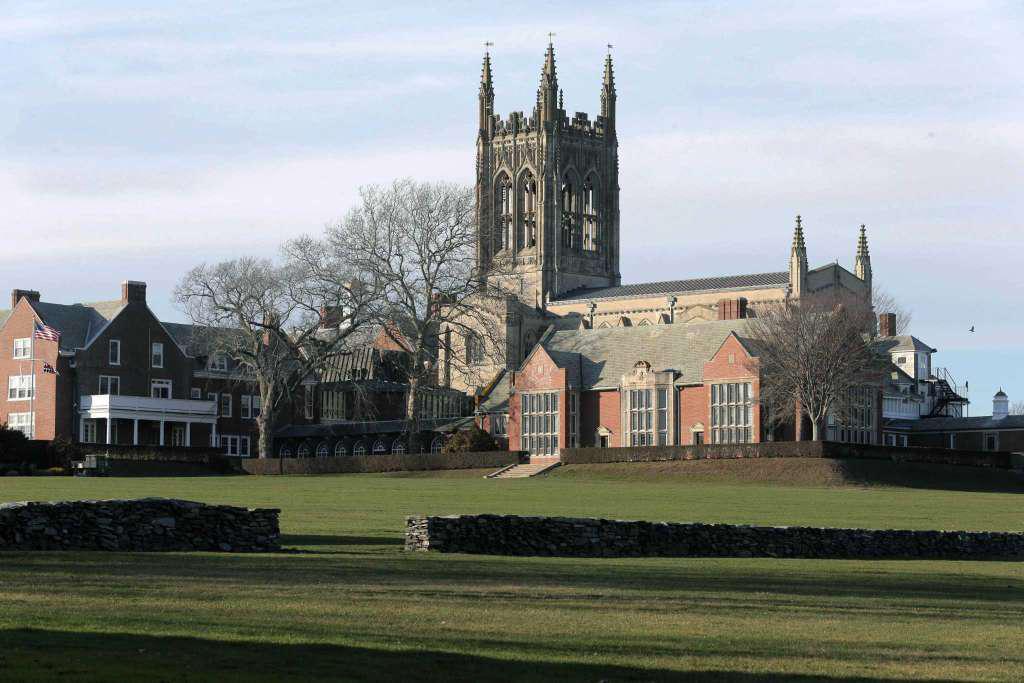|
Prep school sex abuse cases lead to victim therapy funds
By Holly Ramer
[with video] An elite prep school's decision to pay for therapy for sexually abused alumni mirrors an increasingly successful approach taken by other institutions, according to victims and their advocates. St. Paul's School in Concord recently announced three initiatives to support abuse survivors: an independent arbitration system for those seeking monetary compensation, an alumni-led effort to encourage further discussion and the victims' therapy fund. Sexual abuse scandals at New England boarding schools in recent years have resulted in investigations, efforts to adopt safeguards for students and requests for alumni to come forward with memories of misconduct. Several schools have created victim therapy funds, including Choate Rosemary Hall in Connecticut and St. George's School in Rhode Island. Schools are realizing how important mental health services can be even decades after abuse, said Anne Scott, who leads a group advocating for abuse survivors from St. George's. "I think it's initially hard for administrators and school leaders, especially if the abuse happened decades ago, to register that the trauma is lifelong and the effects are lifelong," said Scott, who was repeatedly raped in the 1970s by a school athletic trainer who has since died. Scott's decision to go public with her story in 2015 led to a financial settlement between the school and more than two dozen former students. At least a handful of the St. George's survivors who have used the therapy fund had never sought help before, she said. "In a number of cases, it was the first time survivors had ever told their family members about the abuse and then sought help," she said. An independent investigation into St. Paul's last year detailed five decades of sexual misconduct involving more than a dozen former faculty and staff members. The school neither protected students at the time nor fully investigated their complaints years later, investigators said, and while a few of abusers were fired, most were quietly moved on with letters of recommendations for their next jobs. The initiatives were announced not long after two former students sued St. Paul's and another settled with the school out of court. While the timing may be no coincidence, attorney Eric MacLeish sees more than an attempt to counter negative publicity or ward off future lawsuits. MacLeish represents some of the St. Paul's alumni and other abuse victims, including in groundbreaking cases in the Roman Catholic Archdiocese of Boston. "It's clear to me now that St. Paul's is not just looking at the legal downside. They're looking at, 'What's the right thing to do here?'" said MacLeish, who was also involved in the creation of the therapy funds at Choate and St. George's. "I think it makes the school look better, certainly, and reputation is really important for independent schools, but I'd like to think they've learned and they've changed." Like Choate, St. Paul's is partnering with the Rape, Abuse & Incest National Network, which will have a phone line for St. Paul's alumni. The organization will refer callers to therapists in their area and to a third-party administrator for payment to maintain confidentiality. Former students won't have to file formal reports with the school about the abuse to participate. Keeping that distance is key, MacLeish said, so victims can get help without "going back to the place they were abused." St. George's initially allocated $500,000 for its therapy fund, which was emptied in about 18 months, MacLeish said. Day One, the Providence organization that offered services locally and referred others to therapists it vetted around the country, helped between 50 and 60 alumni, executive director Peg Langhammer estimated. Most of them reached out within the first year of the fund's creation. Some were traumatized not only by abuse but also by the gag orders they had signed and the school's past resistance to paying for therapy, she said. "It was like the floodgates opened," she said. The therapy funds have been transformative for some survivors, MacLeish and Scott said, and they hope St. Paul's will pay for treatments beyond traditional talk therapy. Scott recalled a woman who wrote to her that because of the fund her daughter had gotten help for the first time. "She could see in her daughter that a weight had been lifted and years of anxiety and depressing were melting away," she said. "Her daughter was becoming a new person."
|
.
Any original material on these pages is copyright © BishopAccountability.org 2004. Reproduce freely with attribution.


